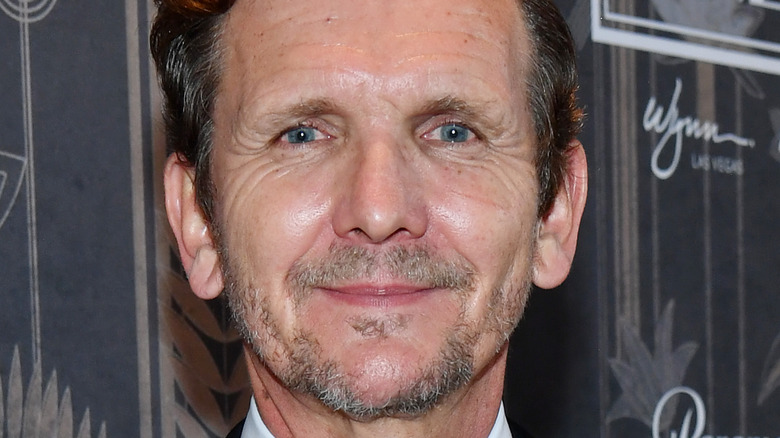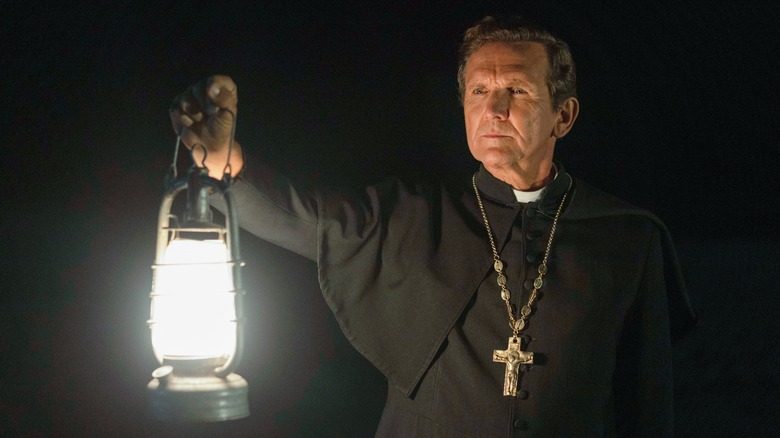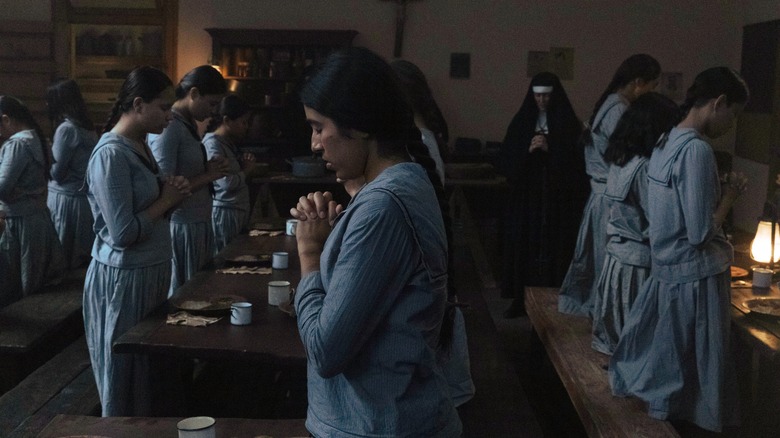Sebastian Roché Names 1923's Father Renaud The Most Hateful Character Of His Career
The success of the Paramount series "Yellowstone" has led to several spinoffs, all created and co-created by "Yellowstone" mastermind Taylor Sheridan. The first spinoff series is titled "1883" and focuses on the Dutton family's travel to Montana, where the current generation resides. The latest spinoff is titled "1923" and focuses on the Dutton family as they already own the Yellowstone ranch, fighting against outside forces trying to wrestle it away from them. The series sees Harrison Ford, Helen Mirren, Timothy Dalton, and Sebastian Roché join the "Yellowstone" franchise.
Roché, a veteran of genre shows, plays Father Renaud, a Catholic priest who runs a residential school where Indigenous children were sent after being forcibly kidnapped and abused in an attempt to force them to give up their culture and adopt Christianity.
The series has not shied away from the brutality that the students underwent in these schools. In a recent interview, Roché spoke about playing Father Renaud and dissected the character's brutal and despicable nature. Here's what he had to say.
The real-life historical aspect affected how Roché approached the role
In an interview with TV Insider, Sebastian Roché spoke about how Father Renaud differed from all the other villains he had played over the years. Roché pointed out that while he's known for playing characters who were not good people at heart, those characters were not actual humans. He especially pointed out the angel Balthazar from "Supernatural" and the vampire Mikael Mikaelson in "The Vampire Diaries" as members of an "invented species," making it easier to distance oneself from their actions.
"1923," on the other hand, was more of a retelling of history, albeit from a fictional perspective, which meant that Roché couldn't distance himself from it, and had to take the role, and the show, more seriously as a result. He conceded that while Mikael had a higher body count than Father Renaud, the latter was someone who could have feasibly existed at some point in history, making him one of the vilest characters in Roché's filmography. "I remember reading the script and going, 'I understand the character's a reprehensible character. He's probably one of the most hateful characters I've ever played.'"
This meant ensuring that he got the character right to highlight that history, and Roché elaborated that it was his responsibility to ensure that the character remained honest about the history that was being portrayed. Roché highlighted that, due to how little the residential schools and their atrocities were discussed, the fact that he got this right became that much more important.
Roché apologized to his co-stars before filming began
Sebastian Roché also spoke about his reactions to filming several brutal scenes. He pointed out that he took the unconventional step of apologizing to his co-stars in the scene before shooting began. Roché recounted that before beginning shooting, he found himself in a room made to look like a residential school classroom, with a group of young Indigenous girls, along with "Yellowstone" performer Mo Brings Plenty, who is also Indigenous and is a consultant on "1923."
Seeing his co-stars, Roché asked to pause the show's setup and spoke to them directly, apologizing for the scenes they were about to do. He noted that the story was important to tell but acknowledged that it had to be traumatic for Indigenous performers to go through, given that it was "one of the darkest chapters" in American Indigenous history.
Roché also noted that this wasn't the first time he had worked on a story focused on Indigenous people, and in fact, had an unexpected connection to "1923." Roché pointed out that he worked on the 1992 Michael Mann film "The Last Of The Mohicans" with Indigenous performer Dennis Banks, who Roché described as Mo's uncle. Roché sent some posters he had from the film depicting Banks to Mo Brings Plenty.


